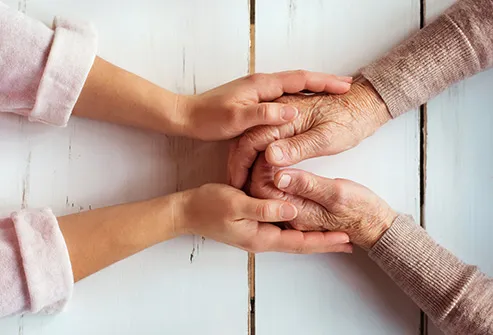12 Ways to Help Someone With Bipolar Disorder

If someone close to you has bipolar disorder, you want to help them get better. But sometimes, it’s hard to know where to start. You may feel frustrated or hurt by their behavior and don’t know what to do or say. Take a deep breath. Your loved one has a better shot at stability with your support. There are many ways you can try to be there for them.

You may be tempted to tell your family member or friend how to “fix” their problems. But sometimes, you need to do more listening. Your loved one may just want to be heard and doesn’t want your opinion right now. Instead, tell her that you’re there whenever she wants to talk. She may not open up all the time, but she’ll be happy to know you’re open when she needs it.

Keep in mind that people with bipolar disorder can live full, successful lives. Let your friend know that the condition doesn’t define her. It’s not a personality flaw, and she can’t just “snap out of it.” Encourage her that she can get better with treatment -- especially when she sticks with it.

Go out for coffee, see a funny movie, or take a walk in the park. Social connections are important, especially if your loved one is depressed. She may isolate herself, which can make the problem worse. Even if she turns down your invitations, keep trying. It’ll send the message that she’s important to you. She’ll probably appreciate your efforts and may eventually say yes.

Don’t let your loved one go it alone. Your support can help her succeed in treatment. Offer to be involved in any way she wants you to be. You can help her:
o Find good doctors or therapists
o Set appointments and go along
o Track her progress
Encourage her to keep taking medications. Some people stop when they feel better or because of side effects. If the medicine is bothering her, ask the doctor if another one may help.

During a bipolar episode, your loved one isn’t himself. He may do baffling and even outrageous things during mania. If he’s depressed, he may be nasty and irritable. If he lashes out or rants at you, resist the temptation to react. Keep in mind that it’s the symptoms of the disorder that are behind his behavior.

Sometimes it’s hard for your loved one to spot a bipolar mood change coming on. She may say she feels great. But you can pick up the signs. Red flags for mania include:
o Sleeping less
o Talking fast and a lot
o Taking chances, like driving too fast or going on shopping sprees
Get help if you think your loved one might be headed toward mania. Her doctor and therapists may be able to stop a full-blown episode.

You can help head off a bout of depression, too. Look for these warning signs:
o Less interest in socializing
o Sleep problems (either insomnia or sleeping too much)
o No energy
o Tearful or sad
o Has aches and pains
Encourage your friend to get up and go for a walk. Stay positive: Point out good things like a great review at work. If he doesn’t get better soon, call the doctor.

A regular schedule may help your loved one’s mood stay steady. Rest is especially important. When late nights out or jet lag disrupts sleep, it can trigger symptoms. Encourage your loved one to get to bed and wake up at generally the same times every day.

Stressors, like losing a job or even moving, can trigger a mood swing. You can’t protect your loved one from every stressful event. But you can help her deal with them when they happen. Encourage her to exercise and try meditation or deep breathing. Take a yoga class together. It may help you both deal with the challenges of bipolar disorder.

Even simple, ordinary tasks can seem overwhelming to a person living with mental illness. Ask your friend what you can do to lighten her load. Volunteer to pick up kids from school or help run errands. If you’re cooking for your family, double the recipe and bring over the second portion to her house.

Your loved one may feel better when he connects with others in his shoes. A support group can provide a place to share experiences and talk about ways to live well with bipolar disorder. If your loved one is hesitant to go alone, offer to go with him. In-person support groups and those that meet online can help.

When someone in your life is bipolar, it can take a toll on your emotions. Caregivers can get depressed or have other health problems. If you don’t pay attention to your own needs, you can get burned out. Try to carve out some regular “me time” to clear your head. Paint, listen to music, or do something else you love. Have lunch or dinner with friends. And don’t feel guilty about it. You can’t support your loved one if you’re not well.